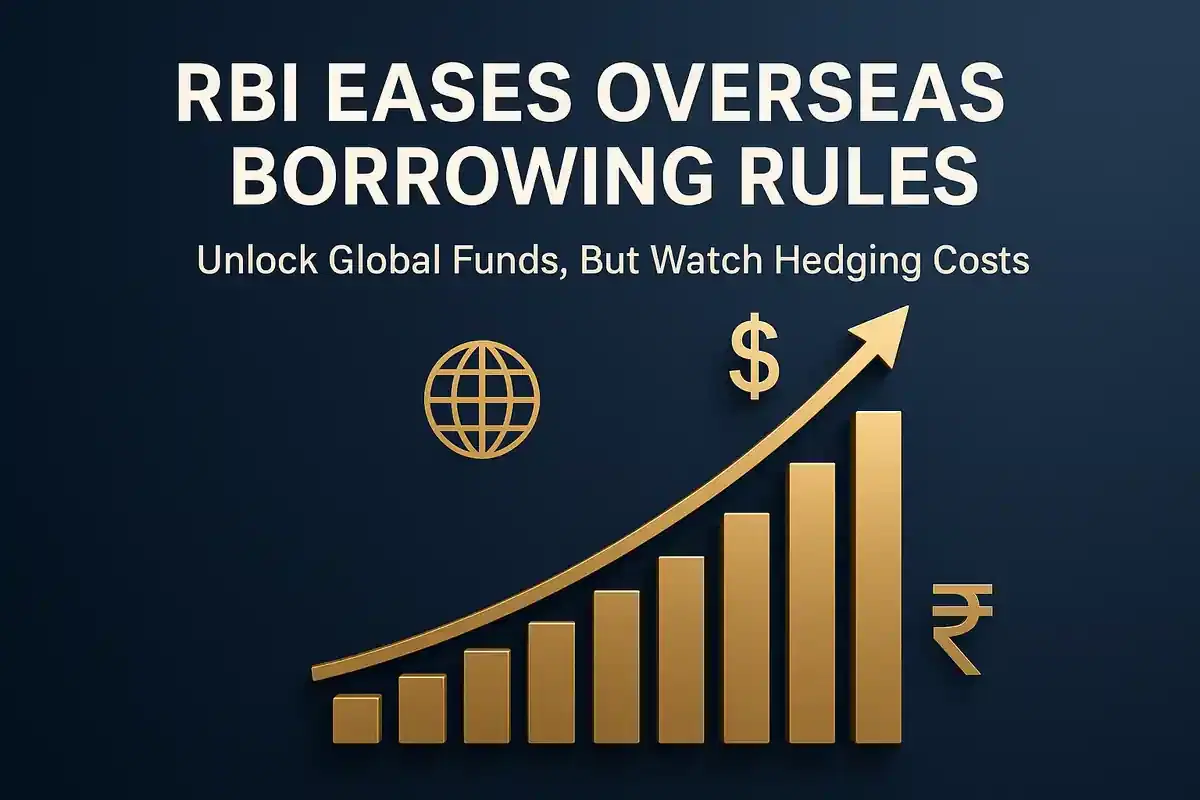RBI Eases Overseas Borrowing Rules, But Local Costs May Limit Immediate Impact
Banking/Finance
|
28th October 2025, 8:55 AM

▶
Stocks Mentioned :
Short Description :
Detailed Coverage :
The Reserve Bank of India (RBI) has announced substantial relaxations to its guidelines for External Commercial Borrowings (ECBs), a move aimed at simplifying access to foreign capital markets for Indian companies. These changes include raising the borrowing limits, removing caps on the interest rates that can be charged on ECBs, and providing greater flexibility in how the borrowed funds are utilized. The goal is to reduce bottlenecks and facilitate smoother overseas borrowing.
Despite these liberalizations, an immediate surge in ECB issuances is not anticipated. This is primarily because domestic loans are currently more cost-effective, and the expenses associated with hedging currency risks have risen sharply. The depreciation of the Indian Rupee against major currencies like the US Dollar has made securing foreign loans more expensive once the cost of hedging is factored in. Data shows that ECB borrowings have actually decreased in the current financial year compared to the previous one.
Non-banking financial companies (NBFCs), which are significant users of ECBs, also face these challenges. While the RBI encourages them to diversify their funding sources, high hedging costs and the potential for increased bank financing in the latter half of the fiscal year are expected to temper their overseas borrowing plans.
Experts suggest a 'wait-and-watch' stance, indicating that while the RBI has created a more conducive environment, actual borrowing decisions will depend on market timing, demand, and pricing. Factors like potential easing of forward rates by the RBI and increased lending from international banks could eventually boost ECB activity.
Impact This news has a moderate impact on the Indian stock market and businesses. It affects corporate financing strategies and the cost of capital. While not expected to cause an immediate market surge due to offsetting factors, it signals potential future easing of funding conditions for Indian companies. Rating: 7/10.
Difficult Terms: External Commercial Borrowings (ECBs): Loans obtained by Indian entities from non-resident lenders, denominated in foreign currency or Indian Rupees. Hedging Expenses: Costs incurred to protect against potential losses arising from fluctuations in exchange rates. Rupee Depreciation: A decrease in the value of the Indian Rupee relative to other currencies. Non-bank lenders (NBFCs): Financial institutions that offer banking-like services but are not regulated as banks. Forward Premiums: The difference between a forward exchange rate and the spot exchange rate, reflecting market expectations of future currency movements.